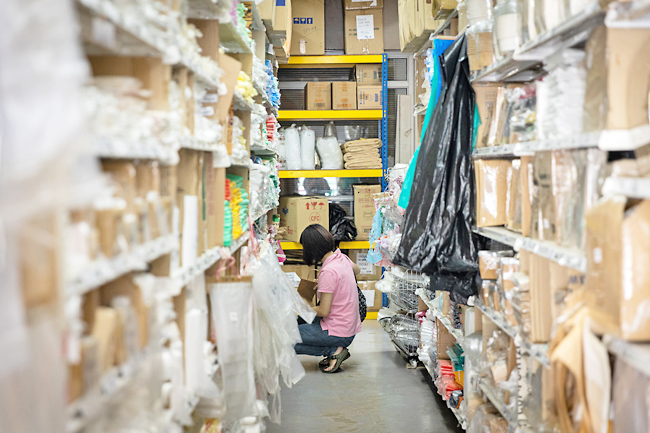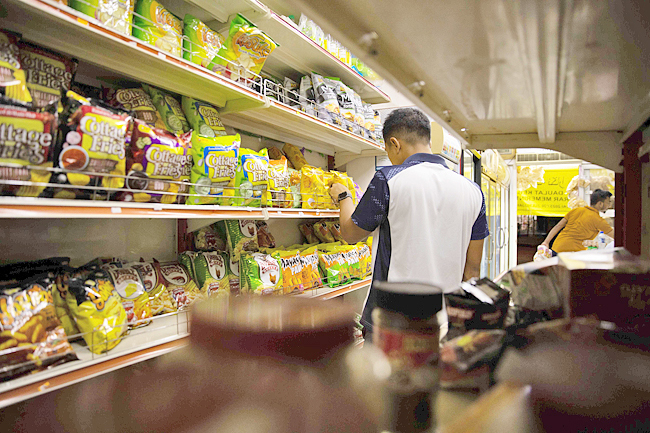As food prices rise after the cost of raw materials increase from geopolitical pressures and inflation, the recently suspended tariffs on plastics had added to the issue.
More than a month after an excise duty of BND5-per-kilogramme (kg) on plastic imports – including disposable containers and bags – was imposed over a three-per-cent rate, the Ministry of Finance and Economy (MoFE) announced the suspension of the duty and replaced it with a five-per-cent rate of the declared trade value as an “interim measure”.
Plastic suppliers, business operators, vendors and consumers were relieved over the move, which the ministry said was to “assist businesses to prepare new strategies and adjust operations accordingly” to support initiatives in reducing the use of plastic in the country.
A representative from a plastic manufacturing company, Evelyn, said that the initial amendment to excise duties came as a shock, referring to the BND5-per-kg excise duty on plastic imports announced in May.
She said there was an absence in guidance from authorities prior to the initial implementation, which left the plastic manufacturer ill-prepared to adapt their operations.
In response, she added, the company had to hike up prices, negatively impacting their customers, who mainly comprised those in the food and beverage sector as well as waste management companies. Items such as ice blocks, ice cubes and frozen food would have seen the prices of their end products inflate, if the previous excise duty rate were to continue, said Evelyn.


Meanwhile, a wholesaler said that despite the May announcement, the company decided to opt out of increasing their prices for plastics.
“If we increased the price, it would have caused ripple effects to other businesses, especially home vendors,” said a representative of the wholesaler.
Meanwhile, the owner of Satay Haji Ibrahim said he was shocked and concerned upon hearing news of a new plastic tax back in May.
He was deeply worried of how it would impact his business expenses which he said was already high.
“Alhamdulillah, the new announcement by the government is a relief for us,” he said.
“Even though it increased from three to five per cent based on import values, it is still a relief unlike the previous charges of BND5-per-kg,” he added.
Similarly, the spokesperson for a local department store said they were thankful to the MoFE for suspending the BND5-per-kg excise duty on plastic imports, which allows them to maintain the prices of their packing materials.
“This in turn will encourage consumers to buy locally and help local businesses and the economy,” he said. “Restaurants and others would be able to absorb the cost of packaging and not pass it on to consumers, providing some relief.”
RISING COST OF FOOD PRODUCTION
Yanti, who owns a home-based business, said her operations had been affected by the price increase in chicken, dairy products and processed food. “For example,” she said, “disruptions in the international supply chain, including the ongoing geopolitical conflict in Europe, and a spike in the cost of raw materials have affected the price of flour.”
Meanwhile, farmer Haji Ayub noted that the cost of pesticides and fertilisers have increased.
While he hasn’t increased the price of his vegetables, Haji Ayub said he is seeing less income.
“We can’t increase the price of our vegetables as this will mean that others will start to import these produce from neighbouring states,” he said, calling on the government to increase subsidies on fertiliser.
Entrepreneur Haji Halim said the costs of shipping have continued to increase, adding to the cost of food.
“Even with oil prices going down and the pandemic receding, food prices are still rising,” he said.
ENVIRONMENTAL AND ECONOMY
Evelyn from the plastic manufacturing company acknowledged the authorities’ efforts in trying to reduce plastic usage in the country, adding that the local manufacturing industry is looking into environmental alternatives to plastic.
“We have actively sought innovative solutions, such as utilising biodegradable and recyclable materials and improving production processes,” she said.
“We are dedicated to finding sustainable solutions, but we require more time to comply as we are still in the process of sourcing eco-friendly materials and exploring alternative options,” she added.
Evelyn hoped that the authorities would consider exempting biodegrable materials from tariffs to encourage their use.
She called for stronger communication between the authorities and industries, especially in regards to new policies that have the potential to affect the local economy. “We also hope the authorities can provide incentives to the local manufacturing industries to move towards a greener country,” she said.
Meanwhile, the company representative from the plastic wholesaler also shared the same sentiment, noting that the company has been importing environmentally friendly materials such as paper-based and biodegradable products to support the nation’s green initiatives.
“These products, we believe, are more sustainable to the environment, which we also promote among our customers and encourage them to replace plastic for more eco-friendly products,” he said. – Rokiah Mahmud & Azlan Othman







